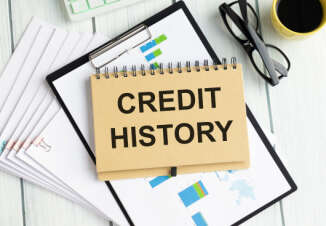The content on this page is accurate as of the posting date; however, some of the offers mentioned may have expired.

Credit history stands for the creditworthiness of an individual. Credit card customers have FICO credit scores which are based on the credit history. Your credit rating is high if your credit history is long, your bill payments are usually on time and your expenses are sizeable. Your credit rating is not so good if your credit history is short or if it is littered with missed bill payments, loan defaults or even bankruptcy. One must be careful in going about building a good credit history. But there are some standard ways to build it within a good time.
This doesn't mean you will buy everything you see with your card. It means, try to spend with your card instead of your cash. Cash expenses do not have any trail. On the other hand, every expense on your credit card adds to your credit history. Most importantly, if your expenses are high but affordable, it is good to charge them on your card, because high expenses coupled with regularity of bill payments gets your credit score up very quickly. Even credit cards prefer exactly the type of customers who spend a lot of the card, but keep paying off the debt.
If possible, you can set up auto debit options for automatically deducting the bills from your credit card, for all the utility bills and from your checking account for the credit card bill. This way, you will not miss a bill payment deadline. Missing the due dates for payment of bills will always take you one step behind. On the other hand, consistently paying the bills every month for a whole year will significantly raise your creditworthiness and hence credit rating too.
If you are looking at a hardwood mahogany table, but not sure if you can afford it that month, avoid purchasing it especially with your credit card. This is because you will end up with an outstanding balance at the end of the month, and wouldn't be able to pay it off in full. The outstanding balance will also incur some interest which adds to the outstanding dues that will keep growing month after month. Avoiding such a scenario consistently will ensure your credit history remains neat and there is no record of large outstanding dues.





